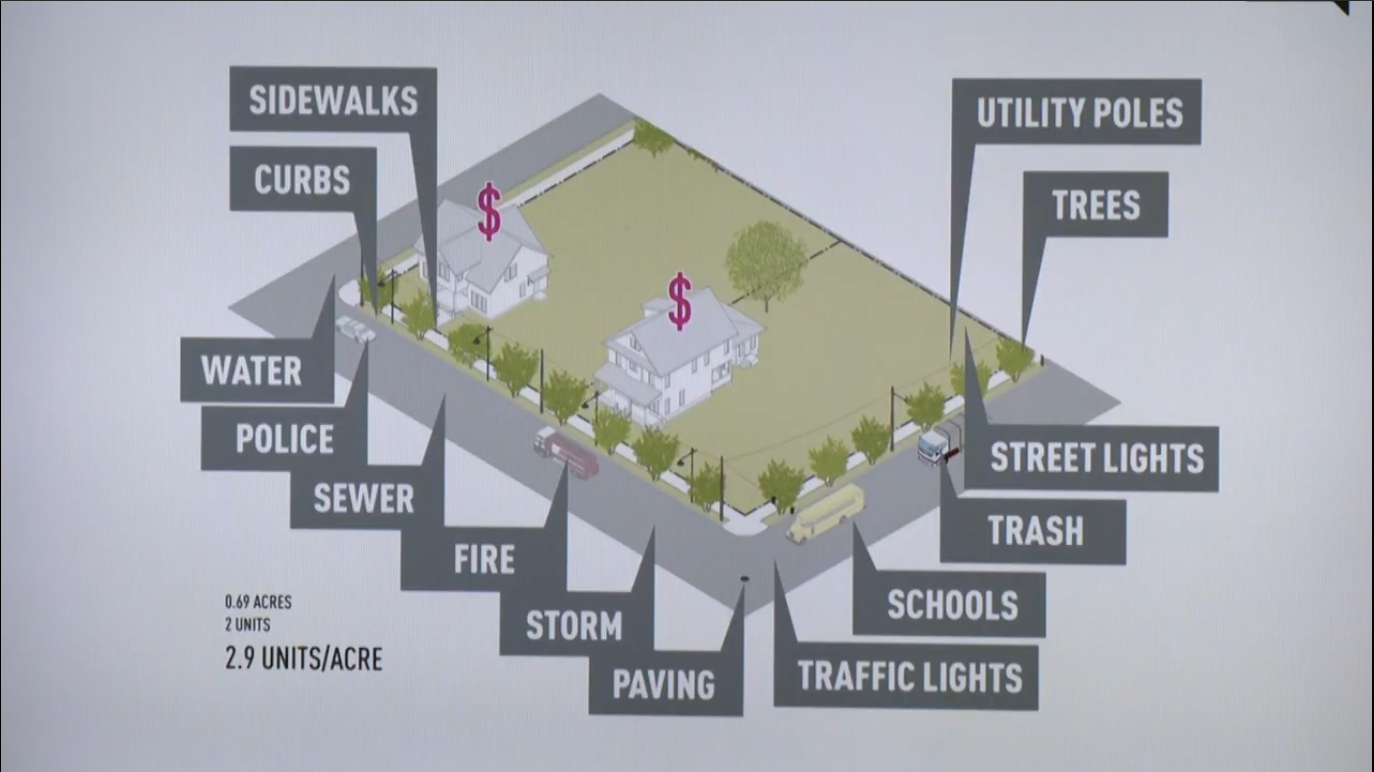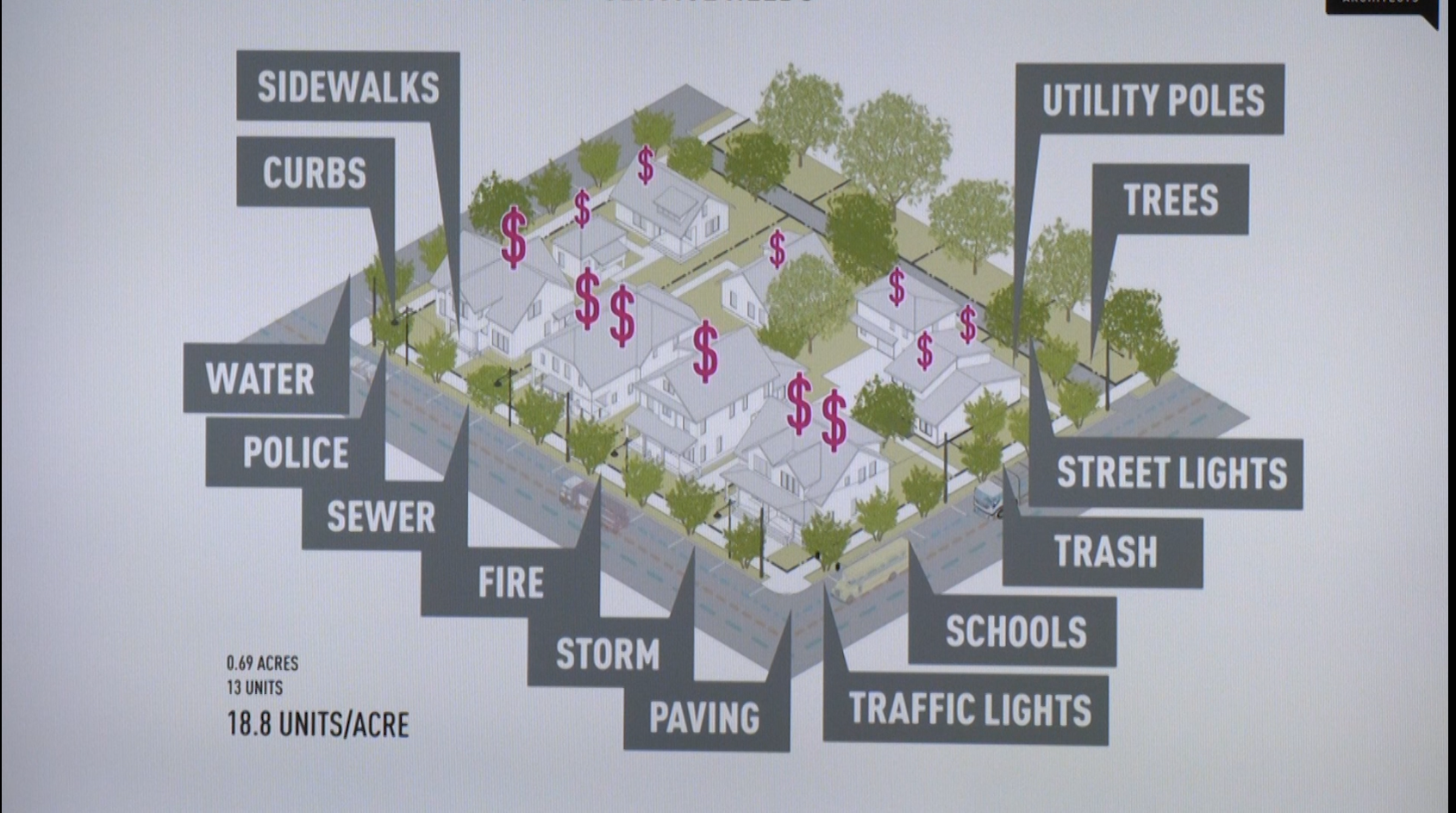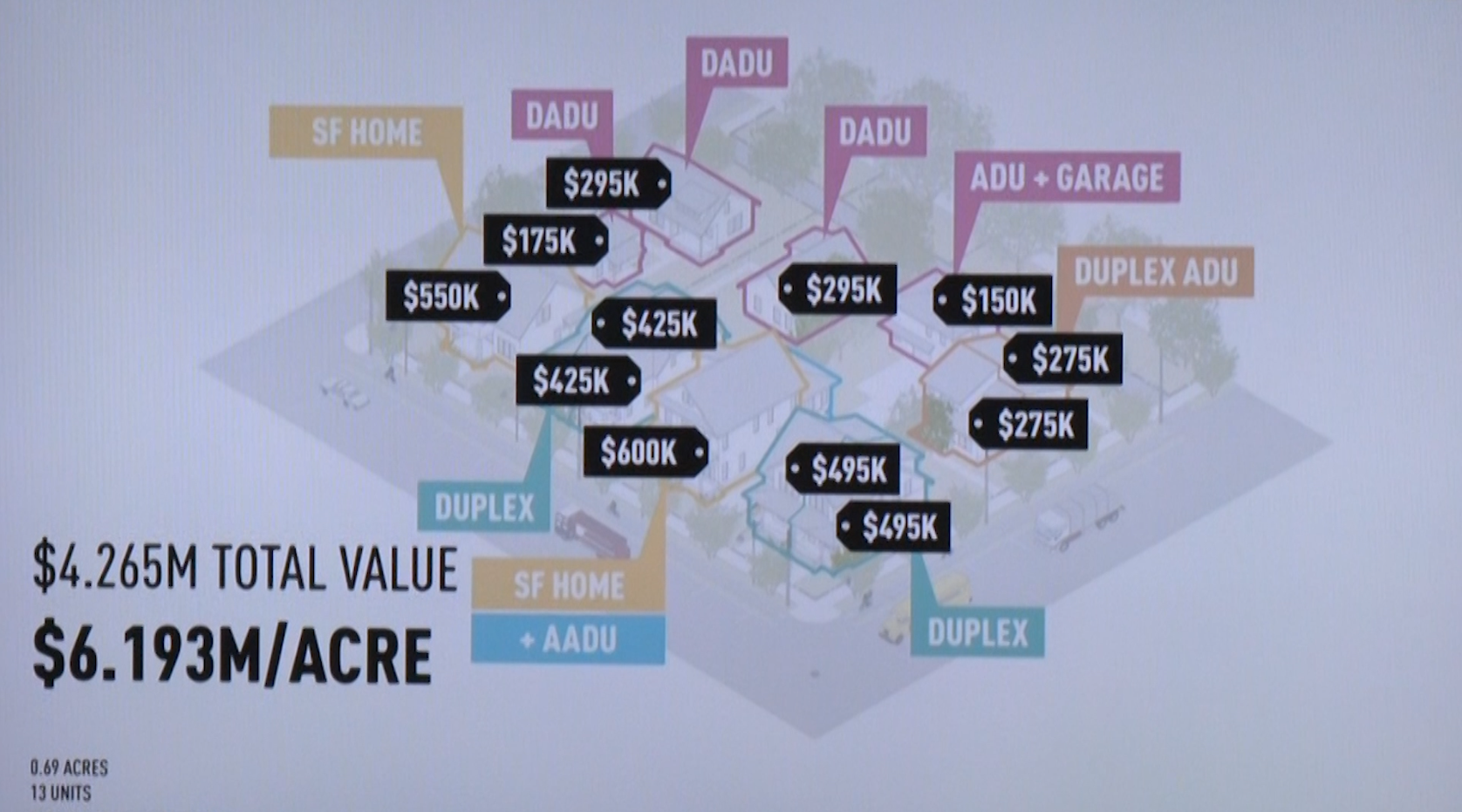TRAVERSE CITY — Stakeholders from all levels of government and private industry gathered at the Hagerty Center, trying to find ways to make housing more attainable at the Northwest Michigan Housing Summit, which wrapped up on Tuesday.
The focus for the second day of the conference included zoning laws and the unveiling of new data tools that point out exactly how current laws are holding back multi-unit development.
Right now, it shows Traverse City simply does not have enough space for the people who want to move here.
“We have 66 acres in Traverse City that are zoned to allow more density than in duplexes, and we need 2000 units,” said Sam Kallen, Data Analyst for Flywheel Community Development.
The Northwest Michigan Zoning Atlas is giving researchers a new perspective on the housing issues in Traverse City.
“It means that we can understand the implications of what’s happening,” Kallen said. “When we discover that after we’ve removed the wetlands, after we remove the other information, we’re only down to a quarter acre, then there’s significantly different implications from that.”
Under current zoning laws, the city would need to build more than 30 housing units for every available acre of land. That’s why experts are calling for a change to the laws.
“We can think about expanding where development can happen,” Kallen said. “We can think about that gentle density that next increment of development, where we’re able to make housing at different price points in different locations in the community.”
One of the solutions identified at the conference includes incremental development, a new focus on zoning laws, and city support that helps homeowners build additions to turn their current property into a duplex or add a backyard cottage.
In this way, the city hopes to expand housing availability while increasing existing home values and keeping infrastructure costs low.
“There are many opportunities in some of our communities that we don’t really know about for housing,” said Yarrow Brown, executive director for Housing North. “Any time we can build closer to infrastructure or an existing neighborhood, where it makes sense, is really a priority here.”



